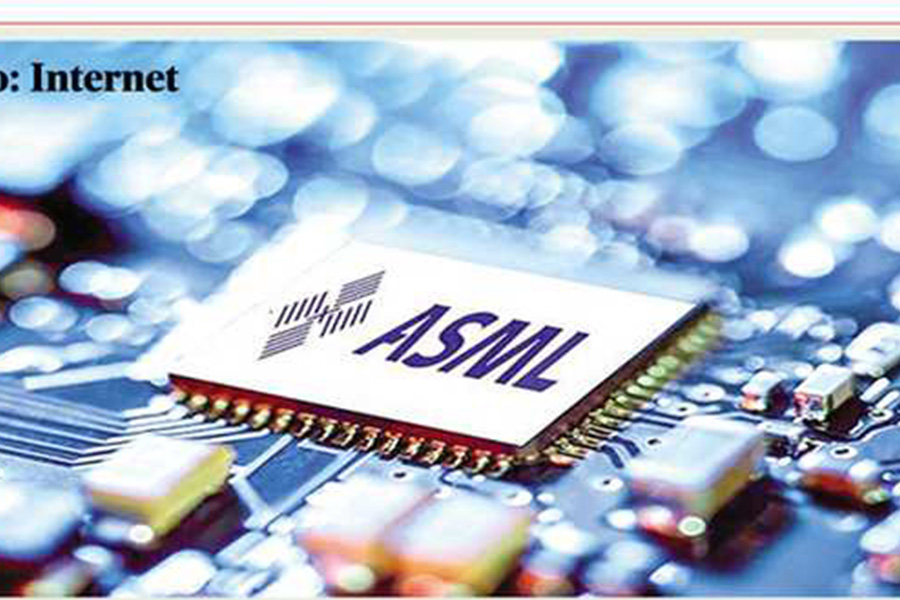How a tiny Dutch company became the backbone of global AI boom

Published :
Updated :

Generative AI is advancing rapidly, promising to transform sectors from education to medicine. But as developers push the limits of what's possible, they face a stubborn bottleneck: inference speed. Many of the most advanced AI models are incredibly powerful but painfully slow when deployed in real-world settings. This technical hurdle doesn't just limit productivity - it draws attention to the hardware powering it all.
Meet ASML-- the Dutch Titan behind every AI chip: Tucked away in Veldhoven, a small town in the Netherlands, sits ASML - the only company in the world that makes extreme ultraviolet (EUV) lithography machines. These US$ 150 million devices are critical for producing the most advanced semiconductors, etching patterns onto silicon at a scale thousands of times thinner than a human hair.
These chips are the engines behind AI models, smartphones, and supercomputers. Without ASML, companies like NVIDIA, Intel, and TSMC wouldn't be able to produce the hardware that powers today's AI revolution.
A geopolitical chess piece: ASML's technology has thrust the Netherlands into the centre of a global power struggle. The US and China are battling for dominance in chip manufacturing, with both recognising ASML's tech as a strategic asset. Export controls and international pressure have forced the Dutch government into a delicate balancing act - maintain neutrality while protecting national and economic interests.
1.6nm chips and the next leap: The industry is now pushing toward 1.6nm chips - smaller, faster, and more energy-efficient. Intel is aggressively investing in this future, using advanced techniques like backside power delivery and exploring direct self-assembly methods. These innovations could redefine the limits of AI capability, boosting model performance while slashing energy demands.
Groq and etched— unlocking chip potential: Building chips is one thing; using them efficiently is another. That's where companies like Groq and Etched come in. Groq specialises in ultra-fast AI inference, essential for real-time applications like autonomous vehicles. Etched focuses on customisable, modular architectures that balance performance and energy use across different environments.
The Netherlands-- small nation, global power: ASML's dominance has quietly made the Netherlands a tech superpower. As AI adoption accelerates, the world's reliance on advanced chips - and by extension, on ASML - will only grow. In the race to define the future of computing, a small Dutch town may hold the winning hand.fe ed


 For all latest news, follow The Financial Express Google News channel.
For all latest news, follow The Financial Express Google News channel.